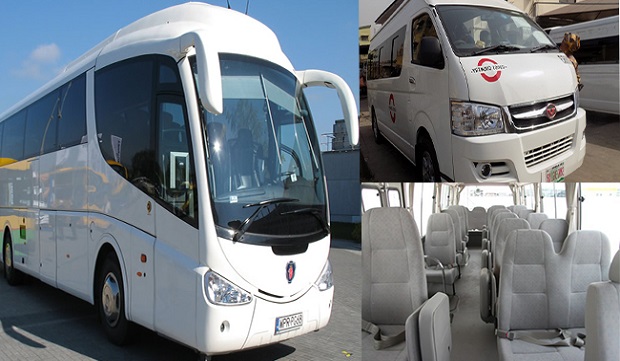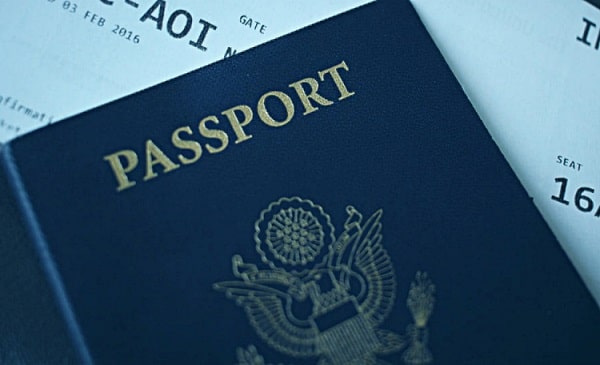How to Immigrate to Ireland in 2024: Step-by-step Guide
More and more young people and even entire families plan to travel abroad and start a new life abroad. That is why we bring you a step-by-step guide on how to immigrate to Ireland so that you can enjoy a unique and unforgettable adventure in one of the best countries to live in.
In this article you will be able to find all the information you need to know before packing your bags and starting this experience: travel requirements, different visas and options to enter the country, necessary procedures, advice and much more!

Why Emigrate to Ireland
Great quality of life
Quality of life is one of the most sought-after characteristics by travelers looking to emigrate to a new destination. In that sense, the latest annual survey conducted by US News & World Report placed Ireland in 15th place in the ranking of countries with the best quality of life in the world.
Safety
When it comes to security, Ireland is one of the most outstanding countries. According to the latest Global Peace Index carried out each year by the Institute for Economics and Peace, Ireland is the third safest country in the world. Only Iceland and New Zealand surpass it.
What makes Ireland so safe? The government has exhaustive control over the purchase and sale of firearms, as well as possession permits. Without going any further, not even police officers use guns on public roads. They don’t need them much either: there are very low rates of robberies, kidnappings and homicides.
Its beautiful landscapes to visit
Ireland has a wide variety of beautiful landscapes to visit and unmissable destinations to enjoy tourism. As for historical sites, the impressive St. Patrick’s Cathedral and the Dublin Writers Museum stand out, both located in the capital.
On the other hand, in terms of natural attractions, there are the Cliffs of Moher, with incredible views of the Atlantic Ocean; the Burren National Park, with its striking soil combining rocks and grass; and the Aran Islands, which have Bronze Age and Iron Age buildings.
Hospitality to foreigners
When choosing a country to emigrate to, it is important to consider the way in which you will be received and treated by its inhabitants. In that sense, Ireland is an excellent option, since it has great hospitality towards foreigners. Without going any further, it achieved a score of 7.88 out of 10 in the migrant acceptance ranking carried out by Migrant Acceptance Index.
Its important educational system and prestigious universities
As proof that Ireland has a prestigious educational system, just look at the latest results of the PISA (Programme for International Student Assessment) tests, where this country ranked eighth.
In addition, there are many renowned universities and study centers. These include Trinity College Dublin, Maynooth University, the National University of Ireland, the University of Limerick and University College Cork.
Its wide job opportunities
If it comes to emigrating to a new country, job opportunities are something essential to take into account. Precisely, it is not at all difficult to look for and find work in Ireland. We recommend visiting large cities like Dublin, Cork and Galway, where the job offer is much broader.
Aspects to take into account before immigrating to Ireland
Cost of living in Ireland
In order to estimate the cost of living in Ireland, one of the biggest expenses you will have is rent. Prices vary depending on the city where you choose to live, but we leave you a list of approximate values so you can calculate.
The cheapest is to get a shared room in a house, which costs between EUR 400 (USD 436) and EUR 600 (USD 654). If you are interested in having more privacy, a complete apartment is better for you, although the price is higher. In central areas, offers range from EUR 650 (USD 709) to EUR 1,200 (USD 1,308), while in the outskirts they can be obtained from EUR 1,000 (USD 1,090) to EUR 2,000 (USD 2,181).
Another essential expense is food. If your intention is to save money, avoid eating out and prepare your own food. Shopping can be done at large supermarket chains, such as ALDI, LIDL and TESCO.
As a reference, we leave you some prices: a liter of milk for EUR 1 (USD 1), a kilo of rice for EUR 1.38 (USD 1.50), a dozen eggs for EUR 3 (USD 3), half a kilo of bread for EUR 1.61 (USD 1.76) and a kilo of potatoes for EUR 1.52 (USD 1.66).
As for transportation, we advise you to use the bus. The single ticket costs EUR 2.70 (USD 2.94), while the monthly pass costs EUR 120 (USD 131). If you don’t mind doing physical activity, a great option is to use a bicycle, which can be found used from EUR 600 (USD 654) to EUR 150 (USD 164).
The last thing to take into account is leisure and entertainment expenses. To name a few, the monthly cell phone plan costs EUR 20 (USD 22), a gym pass costs around EUR 43 (USD 47) and a movie ticket is priced at EUR 13 (USD 14).
Taking all these expenses into account, the cost of living in Ireland is about EUR 1,100 (USD 1,199) per month, although it all depends on the life you lead and the luxuries you want to indulge in.
Minimum wage in Ireland
This year, the minimum wage in Ireland will be established at EUR 1808 (USD 1,971) per month, that is, EUR 11.30 (USD 12.32) per hour. However, you usually earn more than that: at least EUR 13 (USD 14) per hour, which represents about EUR 2,080 (USD 2,268) per month. 20% taxes must be subtracted from that, which gives a net salary of EUR 1664 (USD 1,814).
How much you can save in Ireland
One of the big concerns of travelers is how much they can save per month in Ireland. If we subtract the approximately EUR 1,100 (USD 1,199) that represent the cost of living from the average salary of EUR 1,664 (USD 1,814), this gives a monthly saving of EUR 564 (USD 615).
Requirements to live in Ireland
If your intention is to stay in Ireland for less than three months, what you must do is obtain a tourist visa, which allows you to tour the country for up to 90 days. Citizens of Costa Rica, El Salvador, Guatemala, Honduras, Mexico, Nicaragua and Panama do not need this visa.
If you want to work in Ireland and stay for longer, one of the best options is to apply for a Working Holiday visa, which grants permission for up to 12 months. However, this is not the only work visa, although it is the one with the fewest requirements. There are others such as the Employment visa, for which you must have a previous job offer before applying.
To study in Ireland, there are visas specially designed for students. This way they will be able to stay in the country for up to eight months and, if they pass the course, they can enroll in two other courses to stay for up to 2 years.
Each of these different visas have their own requirements. Some of the most common are demonstrating the financial funds necessary to cover the trip, having the corresponding travel insurance and demonstrating a certain level of English to enroll in a language course.
How to immigrate to Ireland: different visas and programs
Working Holiday Visa
One of the most recommended and most chosen options by travelers is the Working Holiday visa Ireland, which will allow them to stay in the country for one year (12 months) and, during all that time, travel freely through the countries that make up the Schengen Area.
There are not too many requirements to apply. Broadly speaking, they must have an Argentine passport, be between 18 and 35 years old, have no criminal record, demonstrate sufficient financial funds (EUR 1,500 with a return ticket or EUR 3,000 without it) and take out health insurance.
Student visa
If the Working Holiday spots ran out quickly and you couldn’t apply, don’t be discouraged! There are many alternatives, including the student visa for Ireland. The advantages are that they can request it at any time of the year and that there is no age limit.
To do this, they will have to take a course of at least 25 weeks to study English in Ireland. The cost of English courses starts at EUR 2,650 (USD 2,890). With this visa, they can work part-time during the course to cover expenses and even save!
Read Also: Work and Holiday Visa – Everything You Should Know
Work visas
Another great alternative is the different work visas that Ireland offers, although they have more requirements and are more demanding than the other options. You can see the details of each of these visas on the official website of the Irish Immigration Service.
- Employment visa. To apply for this visa, you need to first have a job offer from an Irish employer. It is not necessary to have signed the contract, but it is necessary to have an agreement.
- Employment Scientific Researcher Visa. All those who are interested in working as researchers will be able to apply for this visa. Keep in mind that this makes it impossible for you to do any other work activity in the country.
- Employment Van der Elst visa. It is intended for those who already have a job in a country of the European Union or the European Economic Area. To obtain this visa, your employer has to transfer you to a company headquarters in Ireland.







